Kathmandu – The Nepal GenZ movement has taken a dramatic new direction following Monday’s state violence across the capital and various parts of the country. What began as protests major against corruption and social media bans has transformed into a comprehensive demand for regime change, with the movement now calling for complete government resignation and youth-led interim administration.
The Nepal GenZ movement escalation comes after security forces opened fire on peaceful protesters, fundamentally altering the nature of the struggle. The coordinating group ‘Hami Nepali’ (We Nepali) announced that the movement has evolved beyond its original anti-corruption mandate to become a national battle for accountability and justice.
Following the deadly crackdown that claimed multiple lives, the Nepal GenZ movement has issued unprecedented demands including the immediate resignation of the current government, all provincial ministers, severe legal action against those who ordered the shooting, and the formation of a youth-led interim government.
New Demands: Complete Government Overhaul
The Nepal GenZ movement has fundamentally shifted its agenda following the violent state response to Monday’s protests. The movement’s coordinating body ‘Hami Nepali’ declared that this is no longer merely about corruption but about accountability for innocent lives lost on September 8, 2025.
“A government that has failed to protect its citizens has no right to govern this country,” stated the official declaration from the Nepal GenZ movement leadership. This represents a complete transformation from the initial focus on social media bans and corruption to a comprehensive challenge to the current political system.
The escalation reflects the profound impact of the government’s violent response, with young protesters who initially sought reforms now demanding complete system change. The Nepal GenZ movement leadership emphasized that the state violence has made compromise impossible and transformed their struggle into a generational fight for Nepal’s future.
Revolutionary Transformation
The Nepal GenZ movement has evolved through distinct phases:
- Phase 1: Anti-corruption and social media ban protests
- Phase 2: Peaceful demonstration for government accountability
- Phase 3: Revolutionary demands following state violence
- Phase 4: Call for youth-led interim government
This progression demonstrates how government repression can radicalize moderate reform movements, transforming the Nepal GenZ movement from civic activism into revolutionary politics.
From Anti-Corruption to National Struggle
The Nepal GenZ movement has officially declared that their struggle has transcended individual issues to become a national battle. The movement’s rhetoric has shifted from reform to revolution, with leaders stating this is now “the nation’s fight” rather than merely a youth protest.
This transformation of the Nepal GenZ movement reflects several critical factors:
State Violence Impact: The deadly police response fundamentally changed the movement’s character, making participants view the government as illegitimate rather than simply corrupt.
Generational Awakening: Young Nepalis now see themselves as fighting for their generation’s future rather than seeking incremental reforms within the existing system.
System Rejection: The movement has moved beyond criticizing individual politicians to rejecting the entire political framework that enabled the violence.
National Mandate: Leaders claim the Nepal GenZ movement now represents the broader national interest rather than youth-specific concerns.
The Deadly September 8 Turning Point
September 8, 2025, represents a watershed moment that transformed the Nepal GenZ movement from reformist to revolutionary. The state’s violent response to peaceful protesters fundamentally altered the movement’s trajectory and demands.
Before September 8
- Focus on corruption and social media bans
- Peaceful protest methods
- Reform-oriented demands
- Traditional civic engagement
After September 8
- Demand for complete government change
- Revolutionary rhetoric
- Non-negotiable positions
- Rejection of existing political system
The Nepal GenZ movement leadership emphasized that the violence committed against peaceful protesters has created an unbridgeable gap between the youth and the current government. This has made their struggle existential rather than negotiable.
Innocent Lives Lost
The movement’s declaration specifically references “innocent lives lost on September 8, 2025,” making accountability for these deaths a central demand. The Nepal GenZ movement argues that a government willing to kill its own citizens for protesting peacefully has forfeited any moral authority to govern.
This focus on accountability for the deaths represents a significant escalation, as the movement now demands not just policy changes but justice for what it characterizes as state murder of peaceful protesters.
Hami Nepali Group Takes Leadership
The ‘Hami Nepali’ (We Nepali) group has emerged as the primary coordinating body for the escalated Nepal GenZ movement. This organization has taken responsibility for articulating the movement’s new revolutionary demands and strategy.
Organizational Structure
The Nepal GenZ movement coordination through ‘Hami Nepali’ represents a more formalized structure than the initial spontaneous protests. This group has:
- Issued official declarations on behalf of the movement
- Articulated specific demands and timelines
- Coordinated social media campaigns
- Maintained discipline regarding non-negotiable positions
Clear Messaging Strategy
‘Hami Nepali’ has provided the Nepal GenZ movement with coherent messaging that frames the struggle as:
- A generational fight for Nepal’s future
- A national struggle beyond youth issues
- A non-negotiable demand for systemic change
- A warning against further government suppression
The group’s communication strategy demonstrates sophisticated political organization, moving beyond spontaneous protest to structured revolutionary movement.
Balen Shah: The Youth Choice for Leadership
A significant development in the Nepal GenZ movement is the grassroots campaign calling for Kathmandu Mayor Balendra Shah (Balen) to lead their struggle. Social media campaigns have emerged promoting Balen as the movement’s preferred leader.
Why Balen?
The Nepal GenZ movement gravitation toward Balen reflects several factors:
- Youth Appeal: As a relatively young politician, Balen represents generational change
- Anti-Establishment: His independent political stance aligns with movement values
- Reform Track Record: His work as Kathmandu Mayor demonstrates commitment to change
- Clean Image: Absence of corruption allegations makes him acceptable to protesters
Conditional Leadership
Importantly, the ‘Hami Nepali’ declaration states: “When that moment comes, we will call upon Balen to become our leader.” This suggests the Nepal GenZ movement leadership views Balen’s involvement as conditional upon achieving their initial demands rather than immediate.
This approach demonstrates strategic thinking, with the movement maintaining its autonomous character while identifying potential future leadership that aligns with their values.
Social Media Mobilization
The campaign for Balen’s leadership represents continued innovation in the Nepal GenZ movement’s use of digital platforms. Despite government social media restrictions, activists have maintained coordination and messaging around their preferred leadership choice.
Four Non-Negotiable Demands
The Nepal GenZ movement has articulated four specific demands that represent their non-negotiable positions. These demands demonstrate the movement’s evolution from reform-seeking to system-changing.
Demand 1: Immediate Government Resignation
“First, the immediate resignation of this government,” states the official Nepal GenZ movement declaration. This represents a complete rejection of the current administration’s legitimacy following the violent crackdown on protesters.
Demand 2: Provincial Minister Resignations
“Second, the resignation of all ministers in all provinces.” This demand extends the Nepal GenZ movement beyond federal politics to encompass Nepal’s entire governmental structure, demonstrating the comprehensive nature of their system rejection.
Demand 3: Legal Action for Violence Orders
“Third, immediate severe legal action against those who ordered shooting at our innocent brothers and sisters.” This demand focuses on accountability for the September 8 violence, making justice for protesters a central movement priority.
Demand 4: Youth-Led Interim Government
“Fourth, formation of an interim government led by youth, carrying a vision of just and accountable future.” This represents the Nepal GenZ movement’s ultimate goal – not just removing the current government but replacing it with youth leadership.
No Compromise Position
The movement’s declaration emphasizes: “Our demands are clear and there will be no compromise on them.” This absolutist position reflects the fundamental transformation of the Nepal GenZ movement following the state violence.
Warning Against Government Suppression
The Nepal GenZ movement has issued explicit warnings against any attempts to suppress their struggle through force or intimidation. This represents a significant hardening of positions following the violent government response.
Direct Warning Language
The movement’s declaration states this represents “the voice of a generation” and warns against “the audacity to suppress this under any circumstances.” This language suggests the Nepal GenZ movement leadership believes they have broad generational support that makes suppression politically dangerous.
Escalation Implications
The warning against suppression implies the Nepal GenZ movement is prepared for continued confrontation with government forces. This represents a significant departure from the initially peaceful character of the protests.
Broad Support Claims
By framing their struggle as “a generation’s voice,” the Nepal GenZ movement claims to represent broader youth interests beyond active protesters. This suggests confidence in their ability to mobilize continued support despite government repression.
Social Media Campaign for New Leadership
Despite government restrictions on social media platforms, the Nepal GenZ movement has maintained effective digital campaigns, particularly around promoting Balen Shah’s potential leadership role.
Platform Adaptation
The movement has demonstrated resilience in adapting to social media restrictions:
- Migration to alternative platforms
- Use of VPN networks
- Traditional organizing methods
- Word-of-mouth coordination
Sustained Digital Presence
The continued social media campaign for Balen’s leadership shows the Nepal GenZ movement has maintained digital organizational capacity despite government attempts at censorship.
Strategic Communication
The movement’s digital strategy demonstrates sophisticated understanding of how to maintain momentum and messaging even under government restrictions, suggesting organizational maturity beyond spontaneous protest.
Provincial Government Accountability
A significant aspect of the Nepal GenZ movement’s escalated demands includes targeting all provincial governments, not just the federal administration. This demonstrates the comprehensive nature of their system critique.
Federal System Challenge
The demand for resignation of “all ministers in all provinces” suggests the Nepal GenZ movement views Nepal’s entire federal structure as complicit in the problems they’re fighting against.
Comprehensive Reform Vision
This provincial focus indicates the movement’s vision extends beyond changing federal leadership to transforming Nepal’s entire governmental structure at multiple levels.
Decentralized Corruption Recognition
The inclusion of provincial governments suggests the Nepal GenZ movement recognizes that corruption and poor governance exist throughout Nepal’s political system, not just at the federal level.
Youth-Led Interim Government Vision
Perhaps the most revolutionary aspect of the Nepal GenZ movement’s demands is their call for a youth-led interim government. This represents unprecedented ambition for generational political change in Nepal.
Vision Components
The proposed interim government would be:
- Youth-led: Prioritizing young leadership over traditional political figures
- Justice-focused: Committed to accountability and rule of law
- Accountable: Responsive to citizen demands and transparent in operations
- Future-oriented: Focused on long-term national development rather than short-term political gains
Implementation Challenges
The Nepal GenZ movement’s vision faces significant practical challenges:
- Constitutional processes for government transition
- International recognition requirements
- Administrative capacity and experience
- Political opposition from established parties
Revolutionary Character
This demand represents the most revolutionary aspect of the Nepal GenZ movement, essentially calling for a complete replacement of Nepal’s political establishment with youth leadership.
A Generation’s Voice: No Compromise
The Nepal GenZ movement has positioned itself as speaking for an entire generation of Nepalis, claiming a mandate that extends far beyond active protesters to encompass broader youth frustrations with the political system.
Generational Representation
The movement’s claim to represent “a generation’s voice” suggests they view their struggle as historically significant – a defining moment for young Nepalis’ relationship with their government.
Absolutist Position
The “no compromise” stance reflects the fundamental transformation of the Nepal GenZ movement following the violent government response. What began as negotiable reform demands has become non-negotiable revolutionary requirements.
Historical Consciousness
By framing their movement in generational terms, the Nepal GenZ movement leadership demonstrates awareness that they are participating in a potentially historic transformation of Nepali politics.
Broad Mandate Claims
The assertion that this represents an entire generation’s voice suggests confidence in their ability to mobilize sustained opposition to the current government, even under repression.
Conclusion: Revolutionary Transformation
The Nepal GenZ movement has undergone a complete transformation from its origins as anti-corruption protests to become a revolutionary movement demanding comprehensive system change. The state violence of September 8, 2025, created a fundamental break between the youth movement and Nepal’s political establishment.
The movement’s four non-negotiable demands – government resignation, provincial minister resignations, accountability for violence, and youth-led interim government – represent the most comprehensive challenge to Nepal’s political system in recent history. This goes far beyond traditional protest movements to constitute a generational revolt against established political authority.
The Nepal GenZ movement’s evolution demonstrates how government repression can radicalize moderate reform movements, transforming civic activism into revolutionary politics. The movement’s warning against suppression and claims to represent an entire generation suggest this struggle will continue regardless of government responses.
The focus on Balen Shah as potential leadership, combined with sophisticated digital organizing despite social media restrictions, shows the Nepal GenZ movement has both vision and capacity for sustained political challenge. Their success in maintaining coordination and messaging under government pressure indicates organizational maturity beyond spontaneous protest.
Whether the Nepal GenZ movement can achieve its revolutionary goals or will be suppressed by state power remains to be determined. However, their transformation from reform-seeking protesters to system-challenging revolutionaries represents a fundamental shift in Nepali politics that will have lasting consequences regardless of immediate outcomes.
The movement’s declaration that this is now “the nation’s fight” rather than merely youth protest suggests they believe they have tapped into broader frustrations with Nepal’s political system. If correct, this could represent the beginning of sustained political transformation led by Nepal’s younger generation.
The Nepal GenZ movement’s journey from social media ban protests to revolutionary demands for youth-led government illustrates how quickly political movements can evolve under pressure, and how state violence can transform reformers into revolutionaries with fundamentally different visions for their country’s future.
On social media, Gen Zs have launched a campaign to boycott their own parents, asking them not to call them until they abandon their old parties.




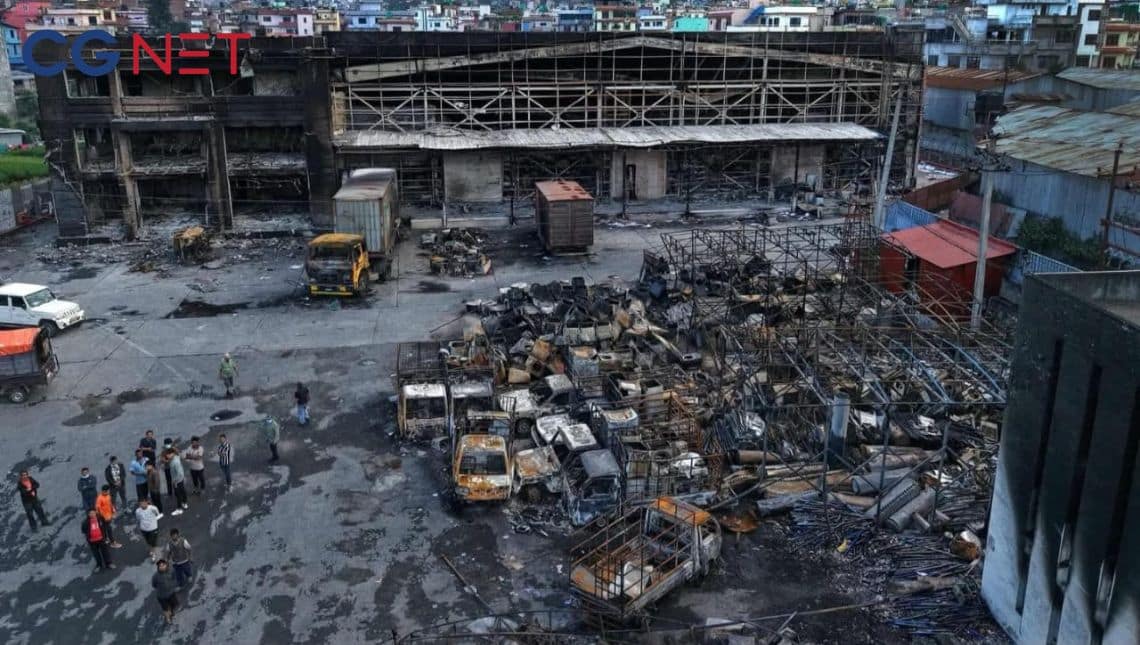




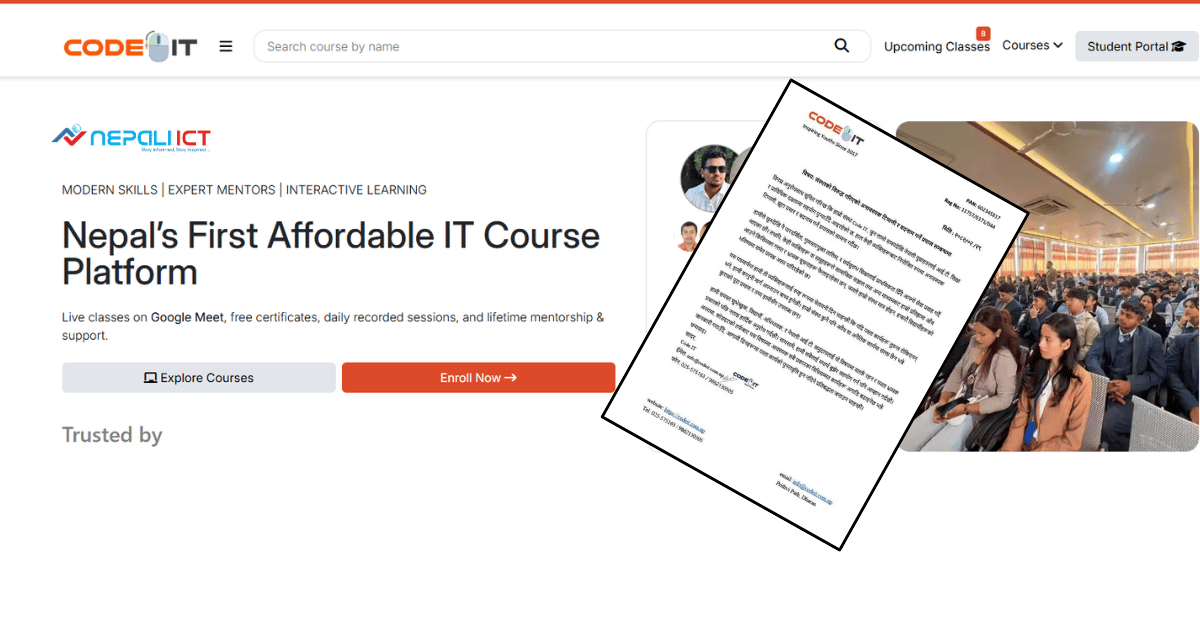

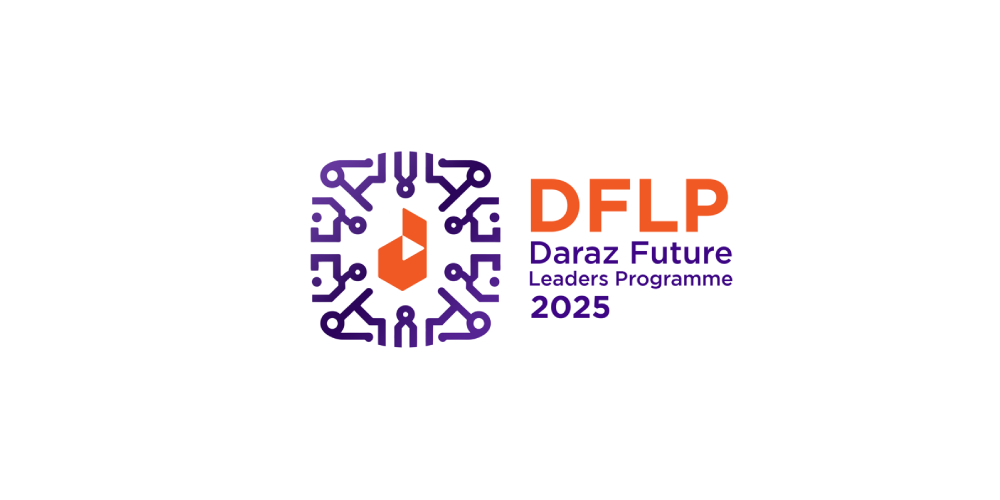


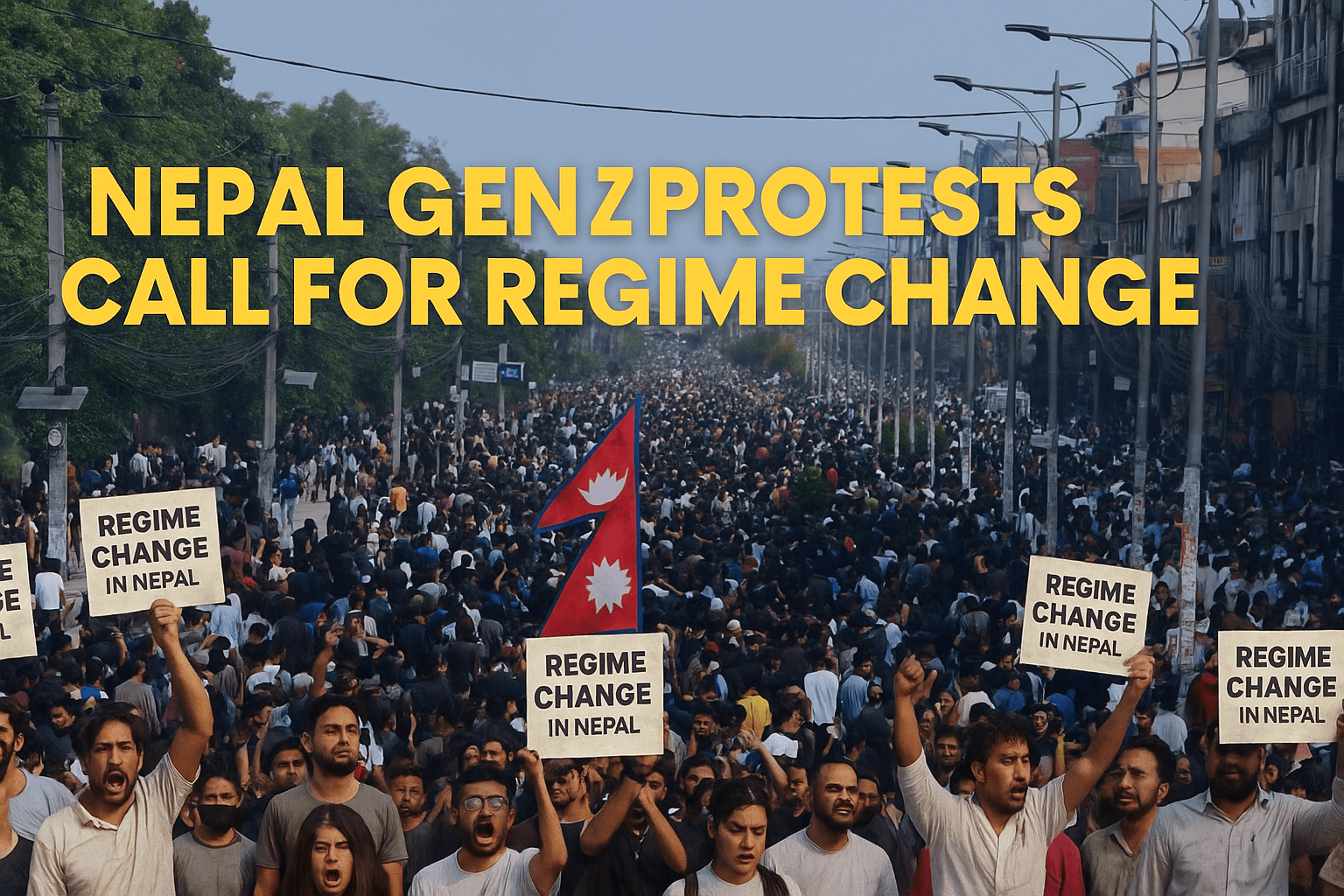
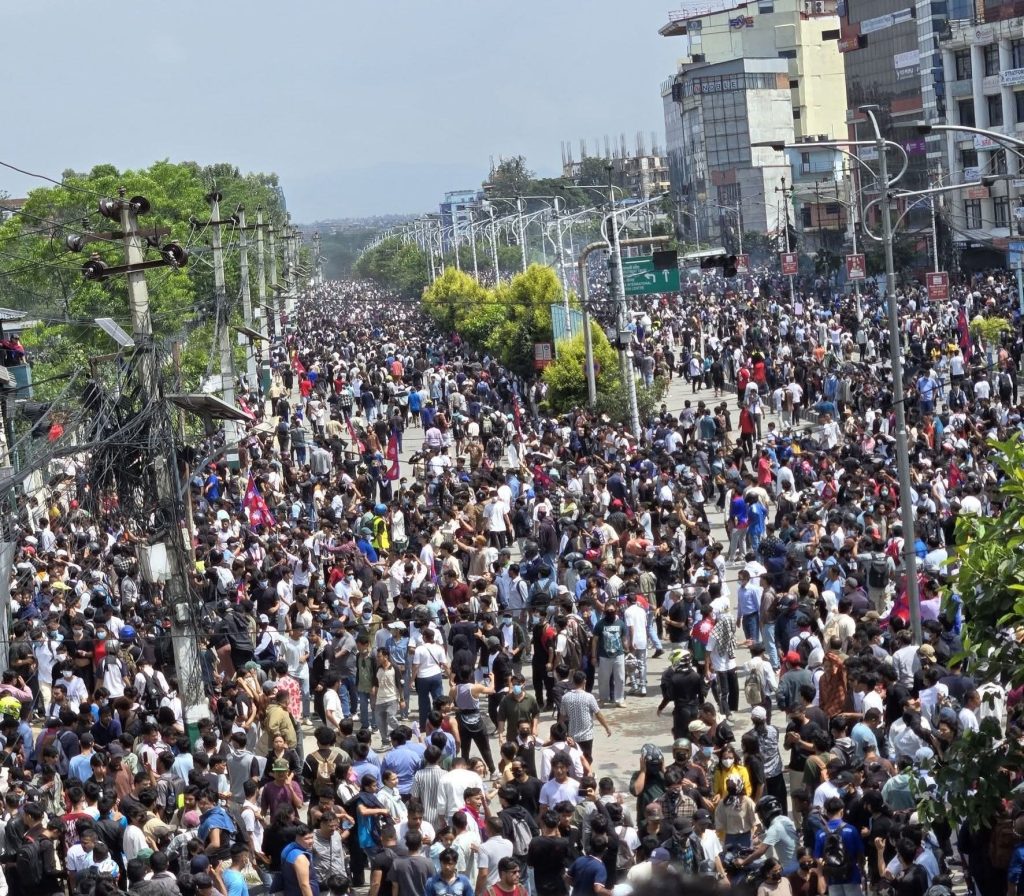







Comments